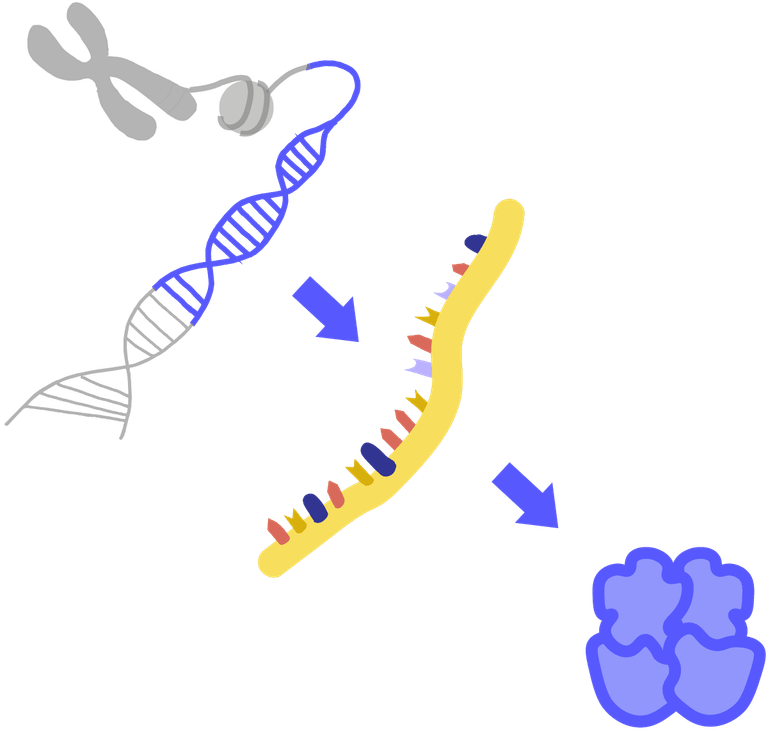The Scientific Exploration of Aging and Logevity
Human intelligence is what separates us from other forms of living things, helping us to be able to make our living easier, creating and fulfilling ambitions, and looking at ways to bring our aspirations to a reality. While we have been able to do a lot of things, one thing we still battle is longevity, and death. The fact that we will all die and not have our consciousness is a big concern for us humans, and we continually look for how to extend our life expectancy, or even reach immortality.
It isn't like it started today. The quest for longevity and immortality has been since about 210BCE where China's emperor Qin Shinhuang ordered that an Elixir of immortality be gotten to him. In the 3rd Century AD, Alchemist created a philosopher Stone that could restore youth as well as grant immortality. Another one is the some worth mythological Exploration of Juan Ponce De Leon in 1513, to search for the fountain of youth.
Today, we have learned a lot about aging, consciousness, and longevity. We now know that different species have different life expectation, and most living animals species do not live beyond the point where they can contribute to reproduction in our world. Species that have a high reproduction rate like ants, rodents, or even microorganisms like bacteria tend to have a shorter life span. These animals have invisible or small bodies and mature very fast, while animals with larger body, that reproduces with lesser children live longer.
While this is true for most living being, there are always exceptions with organisms such as Turritopsis, and Dohrnii Jellyfish as they can revert to a younger form and rejuvenate themselves and they have been known to be able to live for over 500 years. Another organism known as the Cnidaria Hydra has not shown any sign of aging and can live for up to 41 years. That's a lot for a microscopic organism but then another organism has lived for thousand years, and that's the sponge specie Scolymastra Joubini that has lived for about 15,000 years old.
Before the pandemic, the average lifespan of humans around the world is about 73 years, although this will differ from one country to another, and from one planet to another with Central Africa Republic having the shortest life expectancy of 53 years old, while countries like Japan can live up to an average of 84 years. Also, in general women have a longer life expectancy than men and this is as a result of Biological factor, environmental factor, and behavioral factor.
We can tell that we have improved over the years with the average expectancy going higher compared to the average live expectancy in the 1800s which was 29 years old. While we have improved in this, life expectancy for infants has been low for most of human existence but have a possibility to live till old age if they can reach adulthood but this has changed in the course of the 20th century, the rate of death has declined extensively to about 2.6% in infant and 4.6% in children as a result of good food, antibiotics, vaccinations, hygiene, and pediatric development.
In recent time, scientist have been trying to use engineering to get solution to aging and to solve longevity. Scientists have found 12 interconnected biochemical hallmark of aging which present possible target for aging. These biochemical hallmarks includes Genome Instability, Loss of Proteostasis, Epigenomic alteration, telomere Shortening, deregulated nutrient sensing, cellular senescence, mitochondrial dysfunction, disabled macroautophagy, Stem Cell Exhaustion, Altered Intercellular communication, dysbiosis, and Chronic inflammation.
Genetic engineering is also another way we are looking to increase life expectancy. A science research showed that genetic manipulation in mice increased its life by 50% and in a nematode worm by 10 times. Scientists are also looking to study about 78 genes that are responsible for life extension in humans.
We know that a healthy diet can improve and extend life, also certain chemicals such as Omega 3 oil, and different flavonoids are being investigated to promote longevity through varying mechanisms. Temperature is another factor that affects lifespan. A study showed that reducing the body temperature of mice by 0.5 degree celsius can extend the life by 20%.
A research by Harvard geneticist David Sinclair found Nicotinamide Adenine Dinucleotide (NAD) in aging mice and it helped repair their DNA, restoring the blood vessels of the mice and have the ability to heal organ damage making them look younger even when they are old. In humans, as we grow old we lose NAD but then nutraceuticals like nicotinamide ribosome, and nicotinamide mononucleotide are being sold as supplements to help increase NAD in the body but the benefit in humans remains limited.
Reference
https://www.ncbi.nlm.nih.gov/pmc/articles/PMC10531692/
https://www.ncbi.nlm.nih.gov/pmc/articles/PMC3836174/
https://www.aging-us.com/article/204248/text
https://www.ncbi.nlm.nih.gov/pmc/articles/PMC2646218/
https://www.sciencedaily.com/releases/2006/11/061103083756.htm
https://www.ncbi.nlm.nih.gov/books/NBK26818/
https://www.ncbi.nlm.nih.gov/pmc/articles/PMC5105868/
https://parasitesandvectors.biomedcentral.com/articles/10.1186/s13071-022-05211-z
https://www.nih.gov/news-events/nih-research-matters/researchers-find-clue-repair-aging-dna
https://hms.harvard.edu/news/unraveling-mysteries-aging


Thanks for your contribution to the STEMsocial community. Feel free to join us on discord to get to know the rest of us!
Please consider delegating to the @stemsocial account (85% of the curation rewards are returned).
Thanks for including @stemsocial as a beneficiary, which gives you stronger support.